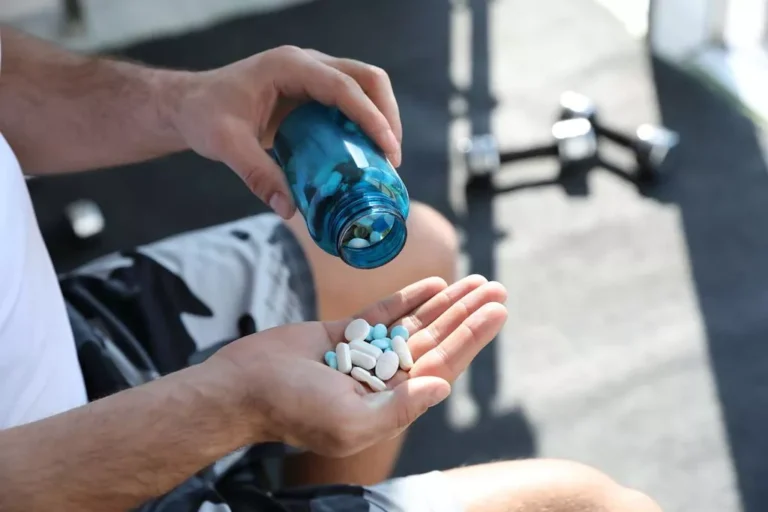
Remind yourself that enabling their addiction won’t help them recover. When you set boundaries, you’re allowing them to experience the natural consequences of their actions, which can often be the wake-up call they need. Be consistent with your boundaries, and don’t back down in the face of emotional manipulation or guilt-tripping.
- His journey began years ago when he assumed a leadership role in an addiction treatment program, igniting a profound passion for mental health and addiction recovery that continues to shape his life.
- Avoid impulsive confrontations about addiction during stressful times or an argument.
- When you use cannabis regularly it can start to harm other parts of your life.
- It’s okay to reassess these needs at different points in your life.
- Encourage your loved one to adopt healthy lifestyle habits that can support their recovery and help overcome marijuana addiction.
How to help someone with a weed addiction
This allows you to express your feelings without placing blame on others. For example, instead of saying, “You are being selfish; why can’t you stop using drugs? ”, you can say, “I feel worried, and I hate to see you struggling”. Quitting marijuana can be a challenging journey for many, but with the right… Is it for health reasons, financial savings, or improved relationships?
Seeking Professional Help: Exploring Treatment Options
- This is a difficult conversation to initiate, but the best approach is one with compassion and a willingness to listen.
- Without boundaries, it’s easy to slip into patterns that enable addiction rather than support recovery.
- As an addiction expert and recovery coach, I have seen firsthand the devastating effects of marijuana addiction on individuals and their families.
- Your healthcare provider may prescribe medications to treat co-occurring mental health disorders.
But make no mistake, the journey to overcome marijuana addiction is as real and challenging as any other substance abuse problem. Whether you are a friend, family member, or healthcare professional, it is crucial that you educate yourself about weed addiction and take steps to support those who are struggling with it. Helping a loved one with marijuana addiction is a challenging, emotional journey, Sober living home but you don’t have to face it alone. Helping someone you care about through marijuana addiction can be overwhelming, especially when it feels like they’re losing control.
Engaging with Empathy: Starting the Conversation
They can offer the encouragement and support that you need to be successful. Finding ways to stay busy can help distract you from some of the unpleasant withdrawal symptoms. It can also keep your mind off of the drug cravings that you might be experiencing.
These findings underscore the importance of integrating mindfulness into addiction recovery strategies, yielding favorable outcomes in long-term sobriety. Many individuals recovering from addiction report transformative experiences through mindfulness practices. Testimonials often highlight how mindfulness training helped them navigate cravings and emotional turbulence, reinforcing their commitment to sobriety. Participants frequently mention improved well-being and stress management as significant outcomes of their mindfulness journey.

Encouraging a Healthy Lifestyle to Support Recovery
This is called tolerance, and at this point, if marijuana use stops, withdrawal symptoms will likely occur, as the brain struggles to seek balance. There are currently no FDA-approved medications for the treatment of marijuana use disorders, but research in this area is ongoing. Clinical trials have shown that buspirone, an anti-anxiety medication, can reduce cravings and drug use and decrease symptoms of irritability. Start by talking to your doctor or mental health professional about your treatment options. It can be challenging to deal with the symptoms of marijuana withdrawal, so caring for yourself is particularly important during this time. Make sure you are eating a healthy diet and getting plenty of rest.

- No matter what strategy you decide to use to stop smoking marijuana, several techniques can help you stick to your goals.
- If your loved one is not ready to seek addiction treatment, set healthy boundaries so that you are not enabling their addiction.
- But Bonar says seeing the number rise does cause some concern, especially for older adults who are at higher risk for some of the drug’s side effects.
- While treatment is the important bulk of recovery, knowing what to expect in the aftermath is the key to staying clean.
- Overall, incorporating meditation into addiction recovery may support a healthier mind and body, facilitating the recovery process.
A quiet, private space is best, ensuring they won’t feel exposed or pressured. Avoid bringing it up in the heat of an argument or during stressful moments. Ensuring your loved one is sober and in a relaxed frame of mind can also help them be more open to the discussion. Contact Narconon today to find out how we can help someone you care about overcome their addiction to marijuana. Then the person goes through a thorough detoxification process to help flush out toxic residues of drug use that remain locked deep in fatty tissues. Once these residues are gone and a person feels fresher and brighter, it is much more possible to recover those clear thinking skills.

Decide to make a change

The goal is to offer a united front and show them how their actions are affecting those around them while providing immediate treatment options. Battling an insidious addiction that slowly erodes one’s life, countless is marijuana addictive individuals find themselves desperately seeking a path to break free from the grip of marijuana dependence. It’s a struggle that often goes unnoticed, hidden behind closed doors and shrouded in misconceptions.


